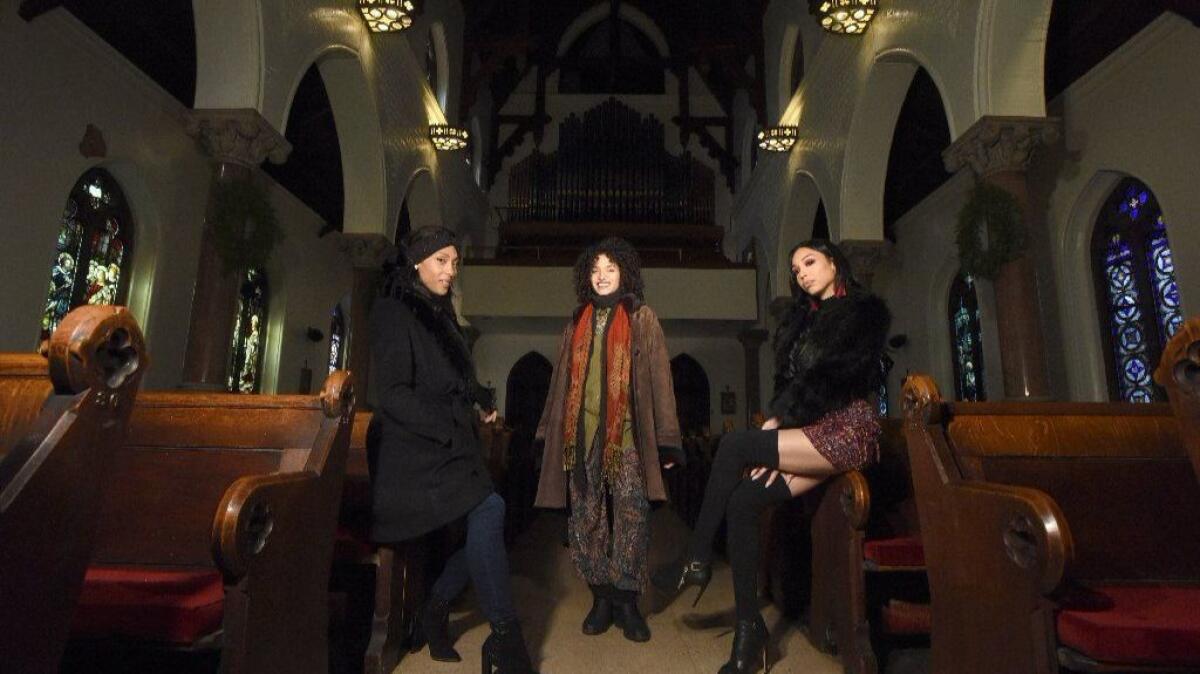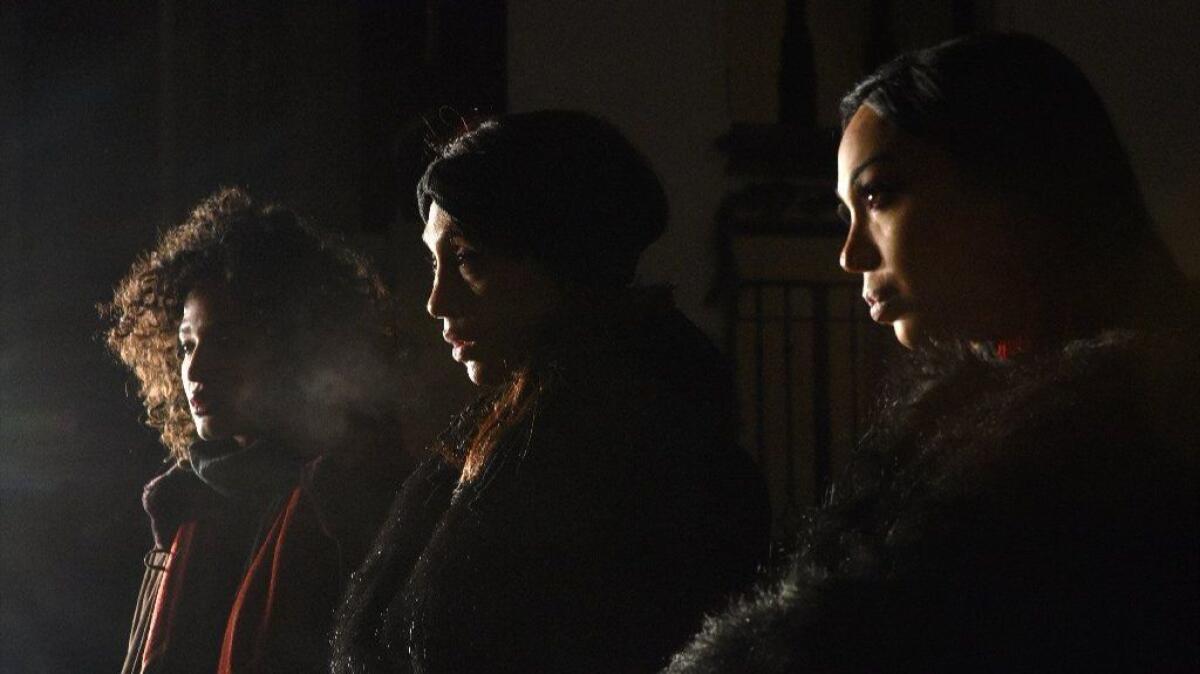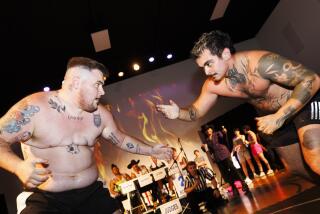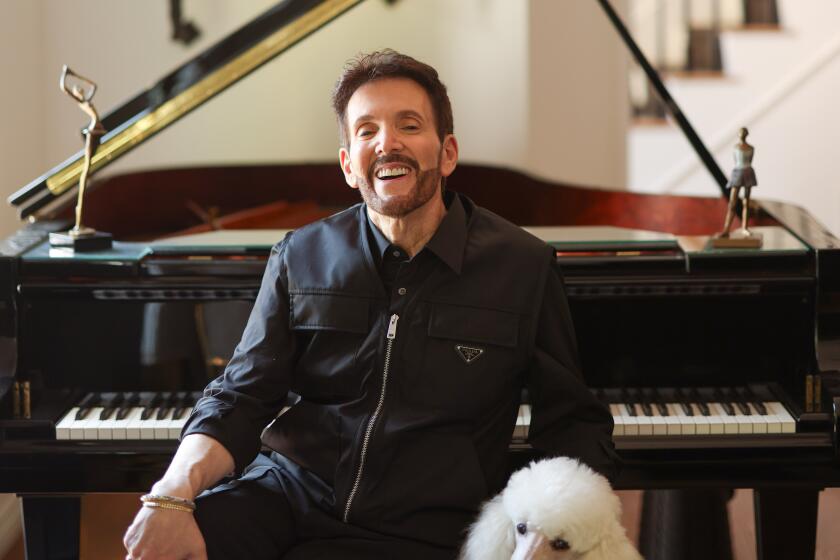What Hollywood can learn from a trip to ‘Saturday Church’

If Hollywood’s 2017 revealed anything, it’s that queer cinema is on the rise. From the historic Academy Award win for “Moonlight” early in the year to the releases of “Battle of the Sexes” and “Professor Marston and the Wonder Women” from major studios — not to mention this year’s Oscar contenders “Call Me by Your Name, “A Fantastic Woman” and “The Wound’ — films by and about LGBTQ people are receiving more attention and delivering more complex storylines.
The trend looks to continue in 2018, and the upcoming Ryan Murphy-created series “Pose” on FX could take things even farther on television with a historic LGBTQ laden ensemble in a portrait of “ball culture” in ‘80s New York.
But despite these obvious steps forward for increased representation across all screens, narratives around transgender people are often still limited in their scope.
We are the only people who know our lived experiences, what it’s like to be trans and the things we go through.
— Mj Rodriguez
“We continue to see productions that are focusing on the death of the experience of what it is to be a trans woman,” said trans actress Indya Moore. “But we have lives and experiences that aren’t just about the struggles of being trans and on the margins. Where are [the stories] where our transness is not [the major plot point]?”
Moore is part of the “Pose” cast and also stars in “Saturday Church,” a film opening Jan. 12 in Los Angeles and on digital platforms, which attempts to help lead such a charge.
From first-time writer-director Damon Cardasis, “Saturday Church” is the story of 14-year-old Ulysses (fresh face Luka Kain), a shy and effeminate kid grappling with questions about gender identity. Their journey to self-discovery takes a turn after meeting a group of trans and gay folk who take Ulysses to “Saturday church,” a program for LGBTQ youth held in the basement of a local place of worship. There, the teen discovers a passion for, and family in, New York’s ballroom scene.
Margot Bingham plays Ulysses’ single mother and Regina Taylor is the devoutly conservative aunt opposite Marquis Rodriguez and trans actresses Moore, Mj Rodriguez (also in “Pose”), Alexia Garcia and Kate Bornstein.
Ballroom, as seen in docs “Paris Is Burning” and “Kiki,” is portrayed as a place of acceptance for participants who find themselves otherwise marginalized. Most are black or Latinx and they belong to cliques known as “houses.”
Led by a mother or father figure, houses serve as families for their members, some of whom have cut ties with their biological kin. Those houses are named after fashion designers such as Chanel or Balenciaga or carry the name of a legend in the community, like Willi Ninja or Pepper LaBeija. Voguing, the now almost mainstream dance form, hails from this community.

Cardasis was influenced to pen “Saturday Church” by an actual LGBTQ outreach program in New York held at the West Village’s episcopal church St. Luke in the Fields. He learned of the program, called Art & Acceptance, through his mother, an Episcopal priest in the Bronx, and volunteered with the group for a number of months.
“After meeting the kids in the program, I was inspired by their narratives and their strength and creativity and their sense of empowerment when they performed,” he said. “[The film] took shape from there.”
While his intention was to just “tell a very human story, to show the challenges this character was going through,” Cardasis knew that for the film, which includes song and dance numbers, to feel authentic to the world he had volunteered in, people from that very program and the ballroom scene needed to be involved.
“There was no question in my mind that the characters needed to be played by people within the community,” he said. “It was harder to put together a movie casting ‘unknown’ or first-time actors, [but] there was no other way of doing it.”
The result is a supporting cast of primarily trans women with varying degrees of acting experience but who all intimately know the experiences of the characters they play. Many of the extras are either from the church’s program or members of the ballroom scene.
Garcia — who is a member of the House of Xtravaganza — was always interested in acting, but she had never auditioned for anything.
“I didn’t see a lot of trans actresses on television so I didn’t think it would even be a possibility,” she said. “It never really crossed my mind.”
The same goes for Moore who has minor acting experience from attending a theater arts high school but had never made moves to break into the film industry. Because Cardasis reached out to house father Jose Xtravaganza (through Facebook) and forwarded casting info, she credits being involved in the scene for the opportunity.
“It’s awesome to see how the industry reaches out to the ballroom scene and culture to portray the ballroom scene and culture,” she said. “It’s been a blessing to help express some of what I’ve come from through our gaze.”
And therein lies what separates “Saturday Church” from other narrative depictions of the ballroom scene and trans and gender nonconforming lives. There’s a raw authenticity present in the film that’s tough to achieve from simply helicoptering in, said Bornstein. (Many will recognize her not as an actress, but as trans trailblazer, performance artist and author of the seminal “Gender Outlaw.”)
When we create productions that focus on the gaze of other people, we’re getting these stories that are putting our transness under a microscope.
— Indya Moore
“Damon, by diving into the world prior to making the film and listening to all of us actors, used whatever privilege he has — yes, gay men have some privilege — to ease somebody else’s suffering,” she said. “And he didn’t impose his voice on any character in the film. On that level, this film is groundbreaking.”
She also notes that his use of the Xtravaganzas and members of the House of LaBeija as consultants and the casting of trans women as trans characters helps this effort, a lesson Hollywood at large can learn.
Mj Rodriguez, whose acting credits include “Nurse Jackie,” “Luke Cage” and an off-Broadway revival of “Rent,” agreed.
“We are the only people who know our lived experiences, what it’s like to be trans and the things we go through,” she said. “We can bring that to the role.”
It’s a striking contrast to the long list of cisgender heterosexual actors who have played trans women in high profile roles, including Jeffrey Tambor in “Transparent,” Eddie Redmayne in “The Danish Girl” and Jared Leto in “Dallas Buyers Club.”
“They don’t have the emotional pull of what it’s like to exist in that margin, what it’s like to be unloved and rejected and the layers of trauma that come with being rejected so often by friends, family, loved interests and for men to feel like it’s okay to abuse you and have their way,” added Moore.
“When we create productions that focus on the gaze of other people who are not trans, we’re getting these stories that are putting our transness under a microscope to be dissected. Our experiences and the trauma we go through are being tokenized for people to gawk at and to fetishize. These people don’t know what it’s like to be rejected because you exist.
“[With us], it’s not acting. We’re actually pulling from an authentic place.”
Get your life! Follow me on Twitter (@TrevellAnderson) or email me: [email protected].
More to Read
Only good movies
Get the Indie Focus newsletter, Mark Olsen's weekly guide to the world of cinema.
You may occasionally receive promotional content from the Los Angeles Times.











